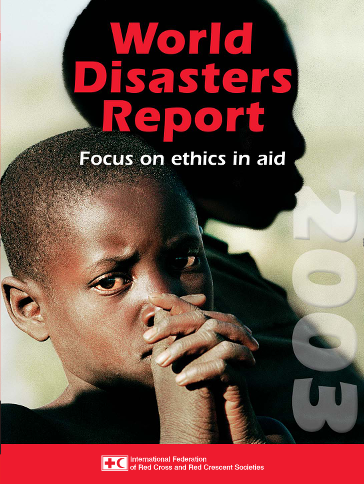
The humanitarian ethic is about saving the lives of those in greatest need. But, swamped as we are by the statistics of suffering, we must also respect the human dignity of every woman, man and child whose life is shattered by conflict, hunger, disease or disaster. Putting the two parts of this ethic into practice remains the greatest challenge facing not only humanitarian organizations, but all those with a stake in humanitarian crises.
The record, however, is very mixed. Humanitarian aid tends to favour high-profile emergencies at the expense of more invisible suffering far from the media or political spotlight. While countries targeted in the ‘war on terror’ have attracted unprecedented levels of humanitarian and reconstruction aid, other – arguably more pressing – crises languish in the shadows. Africa is besieged by droughts, floods, conflict, infectious diseases and – most deadly of all – the HIV/AIDS pandemic, which claimed an estimated 6,500 lives every day last year. Floods and snowstorms have wrecked hundreds of thousands of lives across the Russian Federation and Mongolia. Tens of millions of Asians, Africans and Latin Americans have been forced by violence, natural disasters or economic ruin to flee their homes in search of survival.